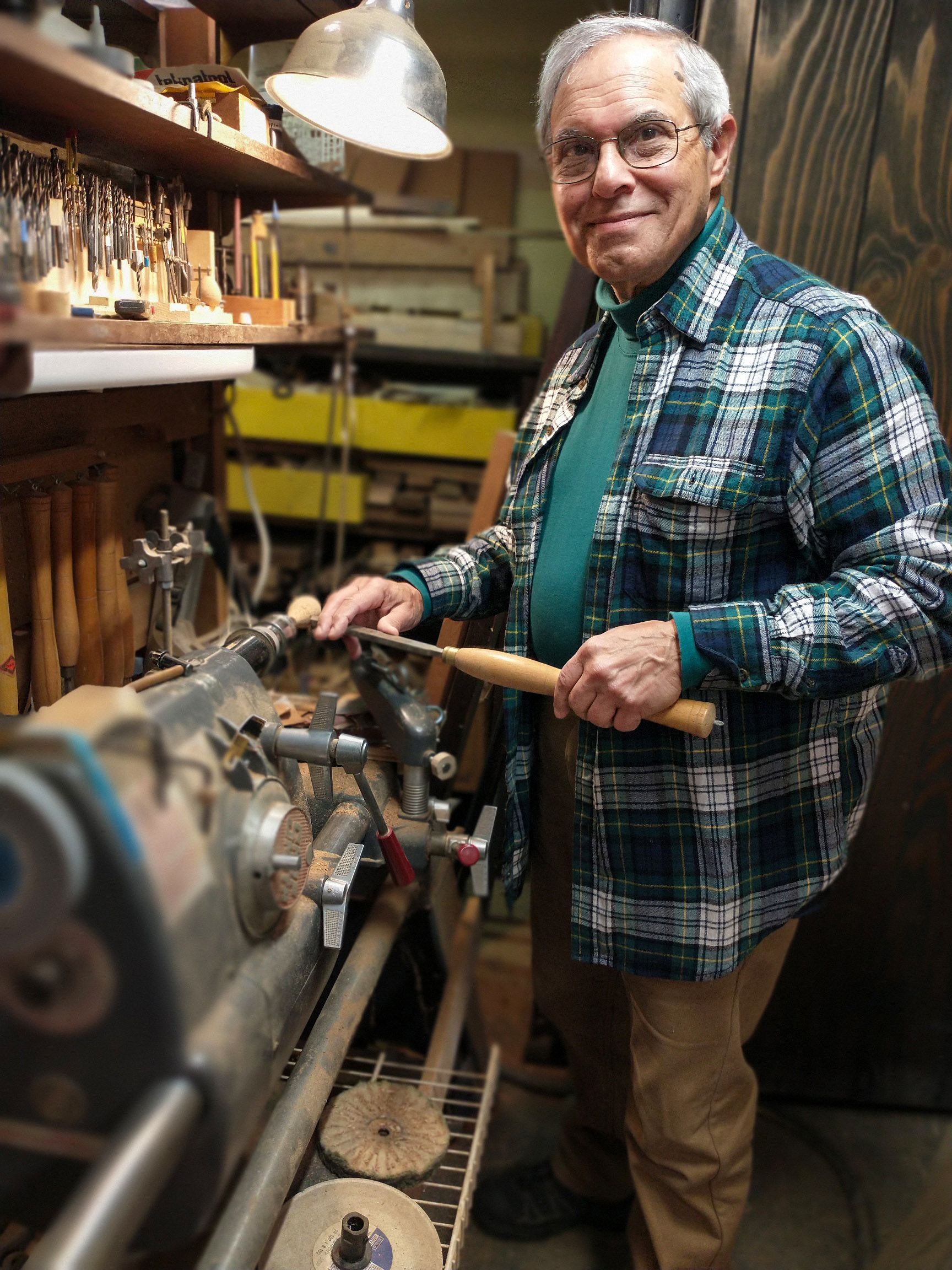Bradley Cooper used this MIT alum’s batons in Maestro
Mark Horowitz ’71

In early 2021, Mark Horowitz ’71 received a call from the props master for a Leonard Bernstein biopic called Maestro. “He wanted to know if I could make a few batons for Bradley Cooper, the star and director,” says Horowitz, a retired software developer and actuary who moonlights as a crafter of conductor’s batons.
Horowitz was not entirely surprised. His father, Dick Horowitz, a Juilliard-trained percussionist, had made several batons for Bernstein—and other famous classical and operatic conductors. It is even rumored that Bernstein was buried with one of the elder Horowitz’s batons. The props master “probably expected me to fall off my chair,” says Horowitz, who learned to fashion batons working alongside his father in their home workshop in the 1960s. “I didn’t have the heart to tell him I’d never heard of Bradley Cooper.”
Born to New York City musicians, Horowitz and his brother, Robert ’73, grew up immersed in music and museums. Their mother, Bernice, was a harpist who played in the pit at musicals including A Chorus Line. Their father played in the Metropolitan Opera Orchestra for 66 years—including decades as principal timpanist. Called “a Stradivari of Sticks” by the New York Times for his baton-making prowess, Dick Horowitz was also the resident orchestra handyman. He made his first baton for Bernstein, who’d broken his while rehearsing Candide. “My father looked at life as an opportunity to solve problems,” Horowitz says.
Horowitz came to MIT in 1967 with sky-high expectations. He says the Institute exceeded them: “I discovered and took courses on subjects I didn’t even know existed.” While earning degrees in both math and electrical engineering and computer science, he sang with the MIT Glee Club under John Oliver and was among Oliver’s recruits for the Boston Symphony Orchestra’s Tanglewood Festival Chorus. “We sang Mahler’s Second Symphony there,” says Horowitz. “Under the direction of Leonard Bernstein.”
Horowitz took over the trade after his father died in 2015, retired from his other jobs in 2017, and now makes about 50 batons a year. The slender, elegant birchwood sticks weigh seven grams and sell for $100 apiece. Each one is custom made. While demand has surged since reports of his work on Maestro hit the media, Horowitz has no plans to ramp up production. “I love making batons,” he explains. “And I’m proud to have contributed, in a small way, to the film. But I have too many other things I want to do right now. Travel. Sing. Finalize a few inventions I’m working on. I don’t want this to become a full-time job.”
Keep Reading
Most Popular
How to opt out of Meta’s AI training
Your posts are a gold mine, especially as companies start to run out of AI training data.
Why does AI hallucinate?
The tendency to make things up is holding chatbots back. But that’s just what they do.
The return of pneumatic tubes
Pneumatic tubes were supposed to revolutionize the world but have fallen by the wayside. Except in hospitals.
How a simple circuit could offer an alternative to energy-intensive GPUs
The creative new approach could lead to more energy-efficient machine-learning hardware.
Stay connected
Get the latest updates from
MIT Technology Review
Discover special offers, top stories, upcoming events, and more.